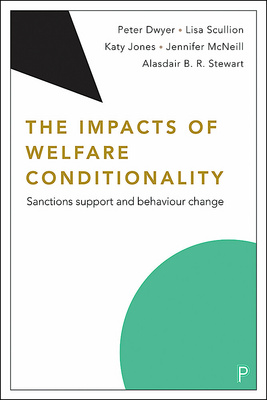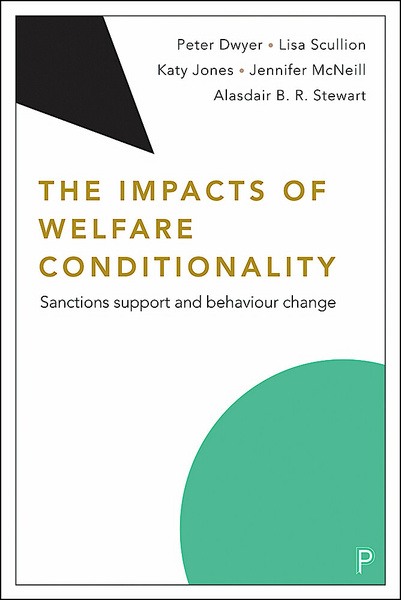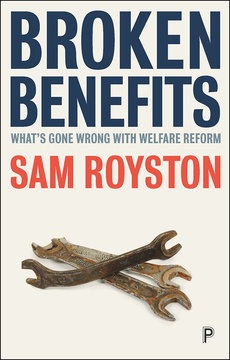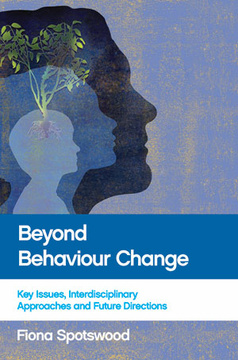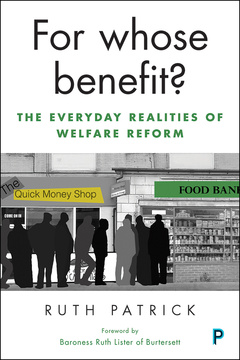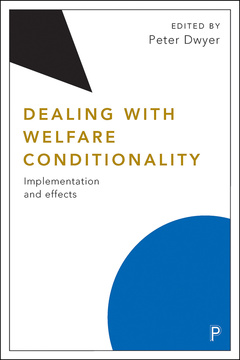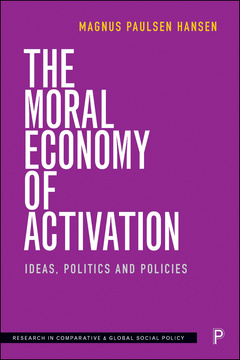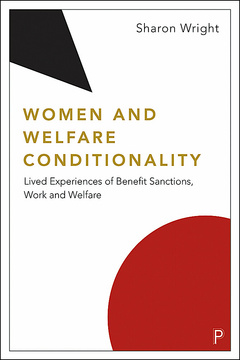The Impacts of Welfare Conditionality
Sanctions Support and Behaviour Change
By Peter Dwyer, Lisa Scullion, Katy Jones, Jenny McNeill and Alasdair B.R. Stewart
ISBN
978-1447343738Dimensions
234 x 156 mmImprint
Policy PressISBN
978-1447320111Dimensions
234 x 156 mmImprint
Policy PressISBN
978-1447343745Imprint
Policy PressISBN
978-1447343745Imprint
Policy PressShould a citizen’s right to social welfare be contingent on their personal behaviour?
Welfare conditionality, linking citizens’ eligibility for social benefits and services to prescribed compulsory responsibilities or behaviours, has become a key component of welfare reform in many nations.
This book uses qualitative longitudinal data, from repeat interviews with people subject to compulsion and sanction in their everyday lives, to analyse the effectiveness and ethicality of welfare conditionality in promoting and sustaining behaviour change in the UK.
Given the negative outcomes that welfare conditionality routinely triggers, this book calls for the abandonment of these sanctions and reiterates the importance of genuinely supportive policies that promote social security and wider equality.
“This is a major landmark in qualitative longitudinal research. The rich, compelling accounts reveal how flawed policy processes can blight lives. If ever there was a case for an overhaul of the British welfare system, this is it.” Bren Neale, University of Leeds
“The theory, practice and ethics of conditionality in welfare clearly explained and rigorously assessed. Read this excellent book to learn about the experience of sanctions and the wider policy context.” Jane Millar, University of Bath
“Future welfare state historians will see this book as an artefact of an era when something went very wrong in the relationship between the UK state and its citizens.” Mark Simpson, Ulster University
Peter Dwyer is Emeritus Professor of Social Policy at the University of York. His research and teaching focuses on social citizenship. He led the large ESRC funded Welfare Conditionality: Sanctions Support and Behaviour Change (2013-2019) project.
Lisa Scullion is Professor of Social Policy and Co-Director in the Sustainable Housing and Urban Studies Unit at the University of Salford.
Katy Jones is Research Fellow in the Centre for Decent Work and Productivity at Manchester Metropolitan University.
Jenny McNeill is Project Manager at Groundswell, and previously worked at the University of Sheffield and University of York on the Welfare Conditionality project.
Alasdair B. R. Stewart is Lecturer in Social and Public Policy in the School of Social and Political Sciences at the University of Glasgow.
1. Introduction
2. Conditionality in the UK Welfare State
3. Welfare Conditionality and Behaviour Change
4. From Welfare to Work? The Effectiveness of Welfare Conditionality in Moving People into Paid Employment
5. Welfare Conditionality and Problematic or Antisocial Behaviour
6. Unintended Outcomes? The Wider Impacts of Compulsion and Benefit Sanctions in Social Security
7. Ethical Debates
8. Conclusions







